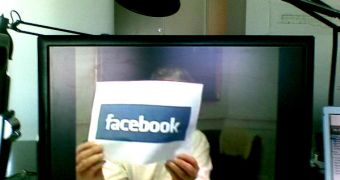In a recent investigation on students, researchers determined that most of America's youth that has been exposed to social media tends to become addicted to it. According to the young adults themselves, the catchiest features that sites of this type provide is instant connections with friends and family, as well as a means of sharing information that is both direct and very fast. In addition, the team behind the study learned that students deprived from access to social media exhibited the same type of behavior as people in withdrawal from drug addiction, LiveScience reports.
The group, which is based at the University of Maryland in College Park, looked at about 200 students from camps. When deprived of access to their favorite social networks, the participants began exhibiting symptoms similar to being in withdrawal: frantically craving to go online, becoming very anxious and extremely antsy, feeling miserable, jittery, and crazy. The same terms are generally associated with alcohol and drug dependency, the research team says. “I clearly am addicted and the dependency is sickening,” one of the test subjects told the researchers.
“I feel like most people these days are in a similar situation, for between having a Blackberry, a laptop, a television, and an iPod, people have become unable to shed their media skin,” the same person said. The self-report study also made researchers propose that not only are students unwilling to renounce their social media lives, but that some of them may simply be unable to do so, from a functional perspective. During the research, entitled “24 Hours: Unplugged,” all 200 participants were asked to renounce using any form of media for a full 24 hours.
Throughout the study time, test subjects were asked to blog on a private website about their experience, or any successes and failures they may have registered. The scientists were surprised to learn that the participants wrote no less than 110,000 words altogether, the equivalent of a 400-page book. “We were surprised by how many students admitted that they were 'incredibly addicted' to media. But we noticed that what they wrote at length about was how they hated losing their personal connections. Going without media meant, in their world, going without their friends and family,” states UM journalism professor and project director, Susan D. Moeller.

 14 DAY TRIAL //
14 DAY TRIAL //